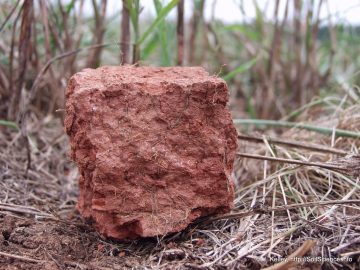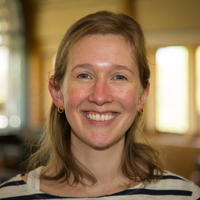Cluster Hire in LFS Applied Biology, Sustainable Agriculture and the Environment, and CSFS at UBC Farm
Research Seminar: Soil Organic Matter Formation and Function: Understanding Soil Organic Matter’s Relationship with Agricultural Productivity
Dr. Emily Oldfield
Research Science Advisor
Forestry and Environmental Studies
Yale University
Click here to fill out the Feedback Form for Dr. Emily Oldfield

From sustaining crop production to enhancing water quality to mitigating climate change, soil organic matter (SOM) provides a multitude of ecosystem services. Yet despite the general consensus of the benefits derived from SOM, research remains inconclusive regarding the enhanced functional benefits derived from additions of SOM. Furthermore, scientific understanding of the mechanisms behind SOM formation and stabilization is currently undergoing a paradigm shift, with significant implications for predicting what will happen to both agricultural yields and soil carbon stocks under climate change. To better understand the mechanisms behind SOM’s contribution to ecosystem services such as carbon sequestration and productivity, my research explores SOM as both a driving variable and an outcome variable. By conducting research on working farms throughout British Columbia, including the UBC Farm, I plan to delve further into consequential relationships between SOM, agricultural management, and ecosystem outcomes.
When and Where?
- June 27, 2019 from 11:00 a.m. to 12:30 p.m.
- MacMillan Building, Room 160
About the Presenter

Dr. Emily Oldfield, Yale University
Dr. Emily Oldfield is a soil ecologist exploring how we can feed a growing population in ways that minimize harm on the environment. Her research focuses on soil ecological processes related to soil organic matter (SOM) and nutrient cycling. She asks mechanistic questions related to processes of SOM formation occurring at the microbial scale as well as applied management questions occurring at the landscape and global scale. She explores these basic and applied questions through extensive analysis of the literature, laboratory investigations, and field and greenhouse experimentation. Her research aims to engage stakeholders in ways that advance ecological understanding while also having direct implications for management. While at Yale, she has been actively involved in engaging students in hands-on experiential learning on the Yale Farm.
This seminar is part of the LFS Applied Biology Faculty Cluster Hire in Sustainable Agriculture and the Environment. Ten short-listed candidates will be giving seminars in May and June as part of their intensive interview process. Click here see a full list of events.